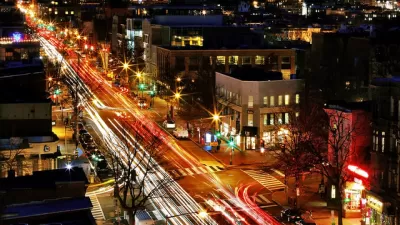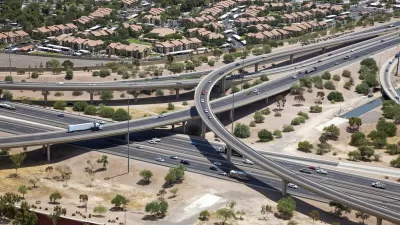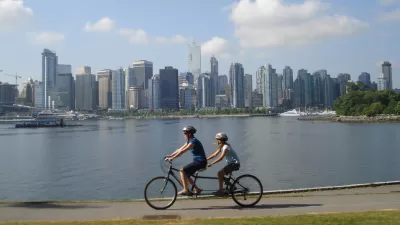Even with ambitious electric Vehicle adoption, the United States must reduce vehicle miles traveled by 20 percent before the end of the decade to limit warming to 1.5°C, according to new research by the Rocky Mountain Institute.

Brian Yudkin, Duncan Kay, Jane Marsh, and Jackson Tomchek writes for the Rocky Mountain Institute:
Beyond the climate consequences resulting from transportation emissions, this high baseline of driving has given rise to a range of societal ills in American cities. These include inequitable access to destinations, disconnected communities, and the nearly universal frustration of congestion. Our highway system has served to segregate populations, heightening long-standing injustices, while high costs of living and limited housing options continue to facilitate sprawl away from city centers.
RMI analysis indicates that the United States must reduce VMT by 20 percent before the end of the decade to limit warming to 1.5°C—and this remains true even under ambitious EV adoption scenarios.
The article continues to details some of the interventions that can reduce vehicle miles traveled (VMT), like pricing signals, ending highway expansions, and transportation demand management and provides an infographic to illustrate the effects of some of those interventions.
FULL STORY: Our Driving Habits Must Be Part of the Climate Conversation

Study: Maui’s Plan to Convert Vacation Rentals to Long-Term Housing Could Cause Nearly $1 Billion Economic Loss
The plan would reduce visitor accommodation by 25,% resulting in 1,900 jobs lost.

North Texas Transit Leaders Tout Benefits of TOD for Growing Region
At a summit focused on transit-oriented development, policymakers discussed how North Texas’ expanded light rail system can serve as a tool for economic growth.

Alabama: Trump Terminates Settlements for Black Communities Harmed By Raw Sewage
Trump deemed the landmark civil rights agreement “illegal DEI and environmental justice policy.”

How Community Science Connects People, Parks, and Biodiversity
Community science engages people of all backgrounds in documenting local biodiversity, strengthening connections to nature, and contributing to global efforts like the City Nature Challenge to build a more inclusive and resilient future.

Alabama: Trump Terminates Settlements for Black Communities Harmed By Raw Sewage
Trump deemed the landmark civil rights agreement “illegal DEI and environmental justice policy.”

Dear Tesla Driver: “It’s not You, It’s Him.”
Amidst a booming bumper sticker industry, one writer offers solace to those asking, “Does this car make me look fascist?”
Urban Design for Planners 1: Software Tools
This six-course series explores essential urban design concepts using open source software and equips planners with the tools they need to participate fully in the urban design process.
Planning for Universal Design
Learn the tools for implementing Universal Design in planning regulations.
City of Santa Clarita
Ascent Environmental
Institute for Housing and Urban Development Studies (IHS)
City of Grandview
Harvard GSD Executive Education
Toledo-Lucas County Plan Commissions
Salt Lake City
NYU Wagner Graduate School of Public Service





























